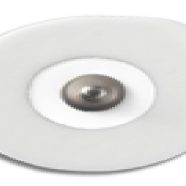Why it Is Good Practice to Dispose of an ECG Electrode After Each Patient
An important part of an ECG reading is the ECG electrode, which gathers the signals necessary to generate an accurate reading. While reusable electrodes are still used, disposable electrodes are more common in clinical settings because they are considered better practice. Here is why it is a good idea to dispose of all used electrodes in between patients.
Prevent Cross-Contamination
The most important reason why you should dispose of an ECG electrode immediately after use instead of reusing it for another patient is to avoid passing on infections to future patients. Even though the ECG site has to be accurately sanitized, and most people do not carry infectious diseases on their skin, clinical settings have lots of bacteria floating around. Reusing equipment such as ECG electrodes unnecessarily increases the risk of serious health consequences.
Hospital or clinic-acquired infections can be devastating to patients who receive them, and cause financial liability for a medical site. It’s better to play it safe and take any precautions necessary to avoid them, including disposing of equipment if necessary.
Get a Better Reading
Another reason why disposable electrodes are better is that you are guaranteed to get a better reading from the start. When electrodes are used multiple times, the adhesive can weaken, which causes the connection between the electrode and a patient’s skin to weaken. If the electrode slips out of place or doesn’t adhere properly, it leads to an inaccurate reading.
That being said, there are settings where reusable electrodes work better for your practice, so always evaluate each situation.






Recent Comments